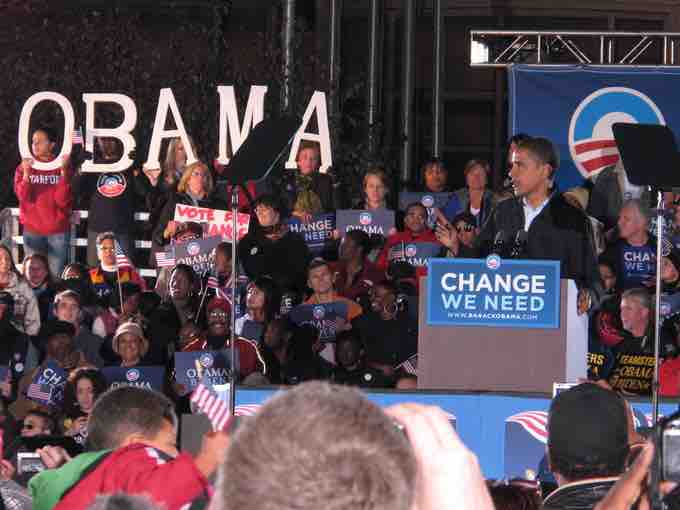Introduction
The growth of the Internet and its associated technologies has had a profound impact on contemporary political campaigns.
The 2004 presidential election between incumbent President George W. Bush and Senator John Kerry was the first to heavily utilize web-based advertising, with advertisements tailored toward different target audiences. President Barack Obama's victory in 2008 was partially attributed to his campaign's use of direct communication through the Internet with supporters and constituents . When discussing the 2004 U.S. presidential election candidates, Carol Darr, director of the Institute for Politics, Democracy & the Internet at George Washington University in Washington, D.C., said of the candidates which benefited from use of the Internet to attract supporters: "They are all charismatic, outspoken mavericks and insurgents. Given that the Internet is interactive and requires an affirmative action on the part of the users, as opposed to a passive response from TV users, it is not surprising that the candidate has to be someone people want to touch and interact with. "

Campaigns and the internet
President Obama's campaign, depicted here, relied heavily on the use of the internet. He used the internet to connect with his constituents and win votes.
Political blogs, generally a series of discrete posts about political issues in which readers may submit comments (thus reinforcing its interactive nature), have become prominent method of covering politics. Though the medium was often originally associated with individuals operating outside the formal political and media establishment, political blogs have unquestionably shaped the actions of political leadership and voter behavior. In the United States and many other countries, the most prominent bloggers have now become an accepted fixture in the political milieu.
Podcasts, a type of digital media consisting of an episodic series of audio, video, PDF, or ePub files subscribed to and downloaded through web syndication or streamed online to a computer or mobile device, have also become a popular way to convey political messages.
The Impact of the Internet on Political Campaigns
The internet is now a core element of modern political campaigns. Communication technologies such as e-mail, web sites, and podcasts for various forms of activism to enable faster communications by citizen movements and deliver a message to a large audience. These Internet technologies are used for cause-related fundraising, lobbying, volunteering, community building, and organizing. Individual political candidates are also using the internet to promote their election campaign. In a study of Norwegian election campaigns, politicians reported they used social media for marketing and for dialogue with voters. Facebook was the primary platform for marketing and Twitter was used for more continuous dialogue. However, despite the opening of communications brought by the internet, elections have become more expensive due to the inevitable reliance on high-tech for all purposes in a campaign.
Signifying the importance of internet political campaigning, Barack Obama's presidential campaign relied heavily on social media, and new media channels to engage voters, recruit campaign volunteers, and raise campaign funds. The campaign brought the spotlight on the importance of using internet in new-age political campaigning by utilizing various forms of social media and new media (including Facebook, YouTube and a custom generated social engine) to reach new target populations. The campaign's social website, my.BarackObama.com, utilized a low cost and efficient method of mobilizing voters and increasing participation among various voter populations. This new media was incredibly successful at reaching the younger population while helping all populations organize and promote action.
Internet-based activism for a wide variety of political causes has also increased due to the growth of social media technologies such as Facebook, Twitter, and YouTube. These technologies enable faster communication by grassroots citizen movements and the delivery of local information to a large audience. For example, the Internet became the catalyst for protests such as the 2011 uprisings in Arab countries and the Occupy Wall Street movement in the United States, as those involved increasingly relied on social media to organize and stay connected.